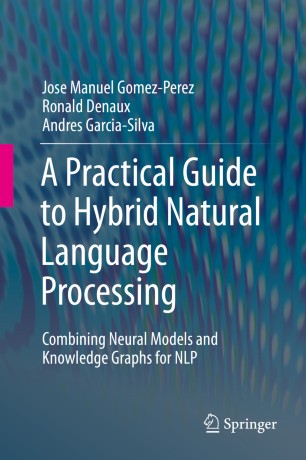

Most ebook files are in PDF format, so you can easily read them using various software such as Foxit Reader or directly on the Google Chrome browser.
Some ebook files are released by publishers in other formats such as .awz, .mobi, .epub, .fb2, etc. You may need to install specific software to read these formats on mobile/PC, such as Calibre.
Please read the tutorial at this link: https://ebookbell.com/faq
We offer FREE conversion to the popular formats you request; however, this may take some time. Therefore, right after payment, please email us, and we will try to provide the service as quickly as possible.
For some exceptional file formats or broken links (if any), please refrain from opening any disputes. Instead, email us first, and we will try to assist within a maximum of 6 hours.
EbookBell Team

4.0
56 reviewsThis book provides readers with a practical guide to the principles of hybrid approaches to natural language processing (NLP) involving a combination of neural methods and knowledge graphs. To this end, it first introduces the main building blocks and then describes how they can be integrated to support the effective implementation of real-world NLP applications. To illustrate the ideas described, the book also includes a comprehensive set of experiments and exercises involving different algorithms over a selection of domains and corpora in various NLP tasks.
Throughout, the authors show how to leverage complementary representations stemming from the analysis of unstructured text corpora as well as the entities and relations described explicitly in a knowledge graph, how to integrate such representations, and how to use the resulting features to effectively solve NLP tasks in a range of domains. In addition, the book offers access to executable code with examples, exercises and real-world applications in key domains, like disinformation analysis and machine reading comprehension of scientific literature. All the examples and exercises proposed in the book are available as executable Jupyter notebooks in a GitHub repository. They are all ready to be run on Google Colaboratory or, if preferred, in a local environment.
A valuable resource for anyone interested in the interplay between neural and knowledge-based approaches to NLP, this book is a useful guide for readers with a background in structured knowledge representations as well as those whose main approach to AI is fundamentally based on logic. Further, it will appeal to those whose main background is in the areas of machine and deep learning who are looking for ways to leverage structured knowledge bases to optimize results along the NLP downstream.